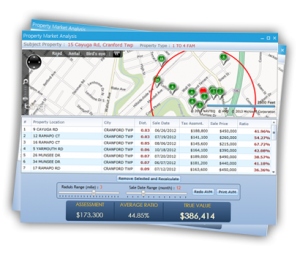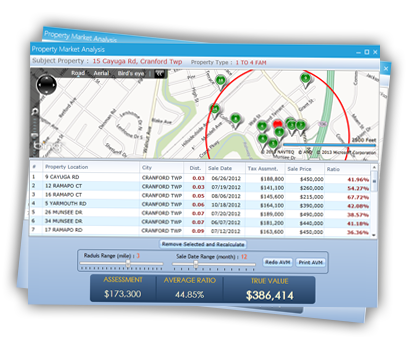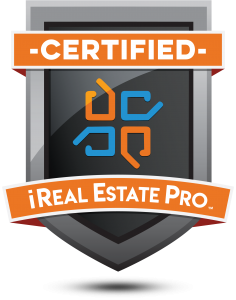 Big news came down the wire last week when it was announced that Zillow had acquired Trulia for $3.5 billion in stock options. While a lot of people may not see how this merger will directly impact their life, for home buyers or sellers, it’s always a good idea to understand the difference between “zestimates”—home value estimates taken from Zillow—or Automated Valuation Models (AVM) and real people.
Big news came down the wire last week when it was announced that Zillow had acquired Trulia for $3.5 billion in stock options. While a lot of people may not see how this merger will directly impact their life, for home buyers or sellers, it’s always a good idea to understand the difference between “zestimates”—home value estimates taken from Zillow—or Automated Valuation Models (AVM) and real people.
When it comes to AVM’s, they tend to work best on “cookie cutter” homes where most of the properties look relatively similar to one another. Therefore, it should come as no surprise that very few lenders rely solely on AVM’s for loan decisions since they can’t always accurately value unique properties such as those sitting on Lake Lanier, various upscale golf courses, and homes with a great deal of acreage.
Therefore, the following is a list of things that an automated or non-appraiser valuation (such as the kind you would find on Zillow) won’t tell you. Before you consider purchasing a home based on these types of online valuations, it’s important to understand the difference.
1.) IS THE PHYSICAL HOUSE STILL STANDING WITH ACCURATE SQUARE FOOTAGE? Sites like Zillow obtain their information from courthouse and property data regarding location and square footage, which means it’s not based on an actual appraiser’s home measurement. If you’re considering a house, you’ll obviously want to know for sure that it has things like four walls and a roof; therefore, it’s not always smart to assume that a computer is the best source for up-to-date data.
2.) ARE THERE UNIQUE FEATURES WHICH MIGHT ADD OR DETRACT FROM THE PROPERTY VALUE? Sure, the computer might value a property at $300,000; however, that number might be subject to extenuating circumstances such as the train tracks just down the road or the desirable parks right outside the neighborhood.
3.) WHAT VARIABLES IMPACT COMPARABLE SALES? While a computer might compare your property to similar, recently sold property a ¼ mile away, it doesn’t mean all of the other variables are in line. The properties might be in a different school district, sit on different roads, be flood-prone, or have been sold under duress.
4.) ARE THERE MARKET FLUCTUATIONS? Since automated online systems utilize data from recent, nearby sales, they may not account for neighborhoods that are beginning to experience upturns or downturns.
5.) IS YOUR APPRAISER QUALIFIED? When you work with an appraiser, you’re generally aware of the person’s qualifications and whether they will complete your project with professionalism, solid ethics, and judgment; however, when it comes to free online services, you have no idea who is behind the values and either way, they will never compare to the work of a physical, on-site appraiser.
Marie Dinsmore, Certified Luxury Home Specialist | The Dinsmore Team | www.dinsmoreteam.com | 770-712-7789





 For buyers looking to truly make their home unique, they offer MyStyle® design consultants who work with each customer to make sure their house reflects not only their needs and personal taste, but their budget as well. For exterior options, they offer finishes in brick, stone, stucco, and siding, as well as a variety of paint colors and design details that compliment the each home’s distinctive streetscape.
For buyers looking to truly make their home unique, they offer MyStyle® design consultants who work with each customer to make sure their house reflects not only their needs and personal taste, but their budget as well. For exterior options, they offer finishes in brick, stone, stucco, and siding, as well as a variety of paint colors and design details that compliment the each home’s distinctive streetscape. In regards to the interior, bonus rooms and sunrooms can be added to any home, while various indoor features come in an array of options including the elegance of hardwood flooring and granite countertops, as well as a variety of brand-new, top-of-the-line appliances that are not only energy efficient, but available in a number of finishes and styles.
In regards to the interior, bonus rooms and sunrooms can be added to any home, while various indoor features come in an array of options including the elegance of hardwood flooring and granite countertops, as well as a variety of brand-new, top-of-the-line appliances that are not only energy efficient, but available in a number of finishes and styles.


 For the second year in a row, The Dinsmore Team is thrilled to announce that Marie Dinsmore has been selected as a Five Star Real Estate Agent award winner. The Five Star Professional program is now the largest and most widely published venue for real estate awards in North America and is carried out using market-specific research throughout the U.S. and Canada. With a focus on identifying service professionals who provide quality assistance to their clients, Five Star’s main research objective is to create a list of real estate agents who demonstrate impeccable levels of integrity, professionalism, knowledge, and concern for their clients.
For the second year in a row, The Dinsmore Team is thrilled to announce that Marie Dinsmore has been selected as a Five Star Real Estate Agent award winner. The Five Star Professional program is now the largest and most widely published venue for real estate awards in North America and is carried out using market-specific research throughout the U.S. and Canada. With a focus on identifying service professionals who provide quality assistance to their clients, Five Star’s main research objective is to create a list of real estate agents who demonstrate impeccable levels of integrity, professionalism, knowledge, and concern for their clients. Real estate truly is our passion, so we couldn’t be happier about this latest accolade. To learn more, Marie is going to be featured in the August issue of Atlanta Magazine and further information about the Five Star Real Estate Award can be found on their
Real estate truly is our passion, so we couldn’t be happier about this latest accolade. To learn more, Marie is going to be featured in the August issue of Atlanta Magazine and further information about the Five Star Real Estate Award can be found on their 

